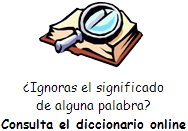Have you ever
had someone “repair” a home appliance but it kept breaking?
I have been having trouble with my sink for a month. Yesterday, the
maintenance man repaired it… again.
And it worked fine… once.
But then last night, I turned the water on low and walked away for just
a few seconds. When I returned, I noticed water all over the floor. I
was about to go to bed. But instead I had to clean up the mess.
Ugh, the sink keeps leaking. So, in a little while, I'll go ask the
building supervisor to replace it.
I just used three conversational English forms in my sad sink story.
All are common to American English and some are common to other
Englishes. They involve the words “about” “keep” and “go.” On today’s
program, I will talk about them.
Be about to + verb
And, I am about to begin.
English speakers use the form “be about to” to emphasize that an action
will happen very soon. It is a friendly form we use in speech every day.
For example, I told you I was about to go to bed. That means I was at
the point of starting that action.
We can also use “be about to” for such subjects as things and ideas. We
can say, for example, “It’s about to rain” and “The proposal is about to
be released.”
The sentence structure is the verb be + about to + base verb. The base
form of a verb is its shortest form with no -s ending.
Listen to a quick exchange between friends hurrying to an event:
Hi, Jonathan.
Hey, Sue. Have you left the house yet?
No, but I was just about to put on my shoes.
Perfect, I’m about to hop on the metro. See you in a few!
Sue said, “I was just about to put on my shoes.” Note her use of the
past tense “was.” We can use “be about to” with the present or past
tense of the verb “be.”
Note also that the word “just” is common with this form. If people say
they are just about to do something, it means they expect to do it right
now.
The negative form of “be about to” has a completely different meaning,
however. It means someone feels a strong desire or willpower to do
something. For instance, “I’m not about to miss this show. I paid $70
for the ticket!” It's like saying, “I will go to the show and won’t let
anyone or anything stop me.” The negative is not always considered
friendly, so use it carefully!
Keep (on) + gerund
Now, let’s move to the verb “keep” plus a gerund, which is the -ing form
of a verb.
When we use this form, it means that something is happening continuously
or again and again. Earlier, you heard me say, “The sink keeps leaking.”
The verb “keep” is followed by the gerund “leaking.”
We often use keep + gerund to show irritation that an action or
situation has not stopped. We also sometimes use it with the preposition
“on.”
Students keep playing with their mobile phones in class, for example.
The cat keeps on scratching the chairs. And my teammate keeps hitting
the ball too far!
Other times, we use it to give directions or tell someone how to do
something. Listen to this person give a friend directions to her house
and tell them what to do when they arrive:
Keep walking straight until you see a flower shop on the right. My house
is the first building behind the shop. Dinner preparations are on the
table. When you boil the noodles, please keep stirring them. Otherwise,
they’ll stick together. Thanks!
You heard the speaker say, “Keep walking straight…” to tell them to
continue walking. They also said, “Please keep stirring” the noodles to
make sure the friend does this continuously.
Go / Come (and) + verb
And finally, we have the form go / come + verb.
In spoken English, we often add the verb “go” or “come” to other action
verbs. When we do this, we are talking about an action in the future.
I said, for example, “So, tomorrow, I’ll go ask the building supervisor
to replace it.” The structure is go / come + base verb. I used the base
verb “ask.”
Use of “go” and “come” do not change the meaning of what we’re saying.
Instead, they make our speech sound friendlier or more natural.
Listen to how our speaker uses the verbs “come” and “go” here:
Come visit me in July! You can stay for the long weekend. There is a
huge film festival happening. So we can go see a lot of movies in a
short time.
The speaker’s use of “come” in “Come visit me in July," for instance,
sounds more natural in everyday speech than “Visit me in July!”
Another version of this form adds the word “and.” An example would be,
“Come and visit me in July!” The “and” is common to British and other
Englishes but only in some parts of the United States.
Well, that’s all for today. Go listen for these forms wherever you hear
English being spoken. Then, come tell us what you find!
I’m about to sign off and go find the building supervisor. See you soon! |
 Sugerencias:
Sugerencias:![]() ). Utiliza el botón derecho del ratón y "guardar enlace" para
descargar el fichero a tu PC, tablet, Smartphone, etc.
). Utiliza el botón derecho del ratón y "guardar enlace" para
descargar el fichero a tu PC, tablet, Smartphone, etc.
![]() Escucha el audio
Escucha el audio
![]() ¿Quieres recibir en tu e-mail gratis y
periódicamente ejercicios, programas gratuitos, explicaciones y otros recursos
para mantener tu inglés sin esfuerzo? Apúntate a nuestro
cuaderno quincenal de inglés.
¿Quieres recibir en tu e-mail gratis y
periódicamente ejercicios, programas gratuitos, explicaciones y otros recursos
para mantener tu inglés sin esfuerzo? Apúntate a nuestro
cuaderno quincenal de inglés.



